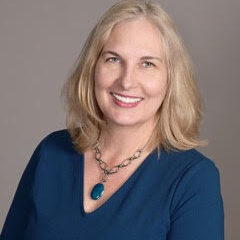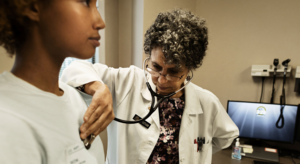
I’ve often wondered what it’s like to go to a Caribbean medical school. On one hand, it sounds rather exotic, yet on the other hand, it seems rather risky. When I hear from offshore medical graduates who have over $300K in debt – and can’t match into a residency, my heart sinks. With an average match rate of 54%, compared to a 94% match rate for US schools, this is not just a handful of individuals who fail to match. To learn more about the offshore path, and offer some advice to those contemplating this direction (or advising loved-ones), I interviewed my client who is a successful graduate of a major offshore school and a board-certified family physician. Please enjoy! (Dr. Andrew is not his real name).
Q: Can you share a first impression of your Caribbean School?
Dr. Andrew: When the plane landed on the island, I thought I had gone to Jurassic Park! There was one other student on the plane with me. He stepped off, looked around, and got right back on the plane. This third world island was not for him. For those expecting luxury hotels and a club med experience, this is not it. There are lizards that crawl up the walls, and when it rains hard, the tap water turns brown. The accommodations were acceptable to me, but may not be to someone like Paris Hilton looking for the latest Gucci shop. The students who were able to tough out the conditions became stronger. We became very close and I made lifelong friends whom I am still in touch with regularly.
Q: What was your class size?
Dr. Andrew: We started with around 410 and by the time we progressed to the clinical rotations, we were down to about 270 students. Depending on the school, attrition rates can be as high as 40%. It was always heartbreaking to see a friend have to repeat a semester. Or even worse, see someone dismissed due to academic difficulty. It happens more in offshore medical schools than in US schools because you are in a group of people who had difficulty getting into a US school in the first place, in most cases. Offshore schools are a sink or swim environment (no pun intended?).
Q: How were your professors in the first two years?
Dr. Andrew: The professors are just like anywhere else you have been to school. There are really great professors, some who are acceptable, and then the ones that should be voted off the island. What is consistent though, is that most if not all the faculty have frequent office hours and are open to answering questions. The faculty in offshore schools are not obligated to pursue research and their main objective is teaching. You will even run into your favorite professors at a local restaurant or at the beach and become friends with them.
Q: How are the 3rd and 4th year rotations arranged?
Dr: Andrew: The rotations will likely be in the US, which is a big selling point of offshore medical schools, compared to most foreign graduates who do not have this experience. We were given a list of hospitals our school is affiliated with in the US. We were then placed at the sites we desired based on availability. A lot of students were moving around about every three to six months to different places. I was lucky and had great rotations for the most part, but at some hospitals, the students were more observers and may not have had the chance to document much in the chart.
Q: Did you encounter any hurricanes?
Dr. Andrew: There was one large hurricane during my time on the island. I decided not to evacuate to the shelter and rode out the hurricane. It was really rough – there were reports of looting, no reliable plumbing, or backup power.
Q: What specialties do graduates match in?
Dr. Andrew: Most students match in primary care specialties such as family medicine, internal medicine, and pediatrics. When you look at the match lists you will also see some placements in psychiatry, emergency medicine, surgery, anesthesiology, and OB/Gyn. There are the rare ones, such as orthopedic surgery, radiology, and ophthalmology, etc, but they are rare and often go to students with USMLE scores over 250.
Q: What advice would you give to those considering an offshore medical school?
Dr. Andrew:
Do your research and select one of the better schools such as St. Georges, Ross or AUC. Look at the school’s track record for residency placement. There are over 60 Caribbean schools, but there are only 5 schools recognized in all of the 50 states. If for example you are from California, but you go to a school they don’t approve of, you would not be able to rotate in California as a student, do a residency there, or even practice there later on. Check with your medical board for a list of approved or disapproved schools.
Make sure the clinical rotations are done in the US.
Understand the tuition and expenses. Schools receiving Title IV federal funding must disclose specific financial information. Here are some statistics from the Ross University Site:
Typical Debt $309,508
Typical Monthly Loan Payment $3,561
Typical Interest Rate 6.8%
Typical Graduate Earnings $155,442
Do whatever it takes to learn the material and perform well on your rotations and licensing exams. The single most disqualifying factor in the residency application process is a failure of one of the USMLE Step exams. There are programs that will take an applicant with a low score on one attempt over someone who failed once and did very well on the second attempt.
Lastly, if you do not see yourself being happy practicing in a generalist specialty, you may want to think twice about going to an offshore school. If it’s ophthalmology or bust, you might end up miserable, and with a ton of debt.
But if being a doctor is a long-held dream and the US doors are closed to you, an offshore school could be your ticket. Just do your research, rock your exams and rotations, and don’t hang around for the Hurricanes.
Thank you very much for sharing your experience, Dr. Andrew.
Latest Posts
Find what you're looking for:
Popular Categories:
Career Change | Career Enhancement | Job Search | Personal Development
10 Comments
Leave a Comment
























US medical schools should be large enough to support US needs!
Thank you for reading and for your comment Frank. It would be ideal if the US medical schools and residencies were able to fill the overall need for physicians, but with an aging population, we are projected to be short between 61,700 and 91,700 in the next decade. I am copying part of a report from the Association of American Colleges (AAMC):
“Washington, D.C., April 5, 2016—Under every combination of scenarios modeled, the United States will face a shortage of physicians over the next decade, according to a physician workforce report released today by the AAMC (Association of American Medical Colleges). The projections show a shortage ranging between 61,700 and 94,700, with a significant shortage showing among many surgical specialties.
The study, conducted by the Life Science division of the global information company IHS Inc., is an update to a 2015 report prepared on behalf of the AAMC and reflects feedback from the health care research community, as well as the most recent workforce data.
“These updated projections confirm that the physician shortage is real, it’s significant, and the nation must begin to train more doctors now if patients are going to be able to receive the care they need when they need it in the near future,” said AAMC President and CEO Darrell G. Kirch, MD.
The report aggregates the shortages in four broad categories: primary care, medical specialties, surgical specialties, and other specialties. By 2025, the study estimates a shortfall of between 14,900 and 35,600 primary care physicians. Non-primary care specialties are expected to experience a shortfall of between 37,400 and 60,300 physicians.
These findings are largely consistent with the 2015 report. In particular, the supply of surgical specialists is expected to decline, just as demand for physicians is growing. The study also finds that the numbers of new primary care physicians and other medical specialists are not keeping pace with the health care demands of a growing and aging population.”
https://www.aamc.org/newsroom/newsreleases/458074/2016_workforce_projections_04052016.html
Caribbean Medical schools graduate a significant number of physicians who go into primary care, and also who are willing to work in more underserved areas.
Becoming a medical doctor, for some, is an “itch” that needs to be scratch, no matter the obstacles. AND attending medical school outside of the U.S. in hopes of practicing in the U.S. can be a daunting obstacle because of the accreditation process. I recently read an article about a woman who attending a Caribbean medical school and was never able to match in the U.S. For 7 years she tried and she finally decided to return to school and become a nurse!
Was the development of these off shore schools an attempt to help or to just take the money of those who had no where else to go? If you want to be a specialist, why bother, according to Dr. Andrew? That is disconcerting to me. The education is good enough if you want to do primary care, but if you aspire to specialize, “fuggetaboutit”! And why does Dr. Andrew not wish to tell us who he is? Will his practice be in jeopardy if his patients find out he trained outside the U.S.?
And I will be honest. For years I felt that physicians who trained in a Doctor of Osteopathy school rather than a medical school were somehow “undoctors”. Hey they had “D.O.” after their names rather than M.D. I believed this until I met a number of Anesthesiology colleagues who had attended a D.O. school, but had trained in M.D. specialty residencies. THAT part of their education was the same as mine. And presently, D.O. schools have a very similar curriculum to schools of medicine.
I don’t know the answer to the doctor shortage in the U.S., but as we presently see, there are many non-U.S. born physicians here that did some of their training outside the U.S. and help take up the slack. Maybe revising the MCATs, using other parameters to determine who makes a good medical school candidate, and just increasing the number of students in the various schools might be a possible solution. I feel that would be better than forcing qualified applicants to leave the U.S. only to return in debt and with no guarantee of fulfilling their dreams of helping society as physicians.
Thank you for sharing your thoughts, Lynette. You bring up a good point in that we often form opinions about others based on preconceptions or limited information. When we have a chance to see for firsthand for ourselves, as you did with your DO colleagues, and gather information based in reality, our judgments can change significantly. Good questions about the origin of the offshore medical schools. With them being for-profit, one cannot dispute that this is a business and there are profit motives. How that ends up affecting the enrollment and overall running of the school would be valuable to know. You have to wonder if enrollment started going down, would schools then be tempted to lower their standards of enrollment to keep the profits up? To address another point you raised, I don’t think Dr. Andrew was saying that the education is good enough to do primary care, but not for a specialist, rather, because so few graduates are granted residency slots in certain specialties that if a potential student could not be happy unless he or she got into something such as ophthalmology, it might be better not to go to one of these schools. It’s a risky gamble.
This is one of the most biased opinionated uninformed pieces writing ever. You should be ashamed.
Michael Southworth,MD,MPH,FACS
Michael, I am sorry you are disappointed in this piece. This was meant to be one doctor’s perspective on his experience, with some statistics included that were referenced. The key points that I thought were raised are that students who want to become doctors go to these schools. They often incur substantial debt and a significant number do not get into residencies and the residency slots are slanted towards primary care. This particular physician had a good outcome. He made it clear not everyone does and offered some suggestions to others. Would you care to be more specific about the content you take issue with? This would be helpful for future posts and to learn something from your comment. Thank you very much.
Thank you for sharing your thoughts about the medical school. Very nicely explained all the topics and detailed. Keep on sharing.
Thank you for reading and your kind comments. Appreciate you!
Great article. Most of the questions are very common myths about Caribbean medical schools. I suggest to have a look at Windsor School of Medicine . Its located in St.Kitts and is a great option for medical students. It has been producing health care professionals for years.
Thank you Aron!